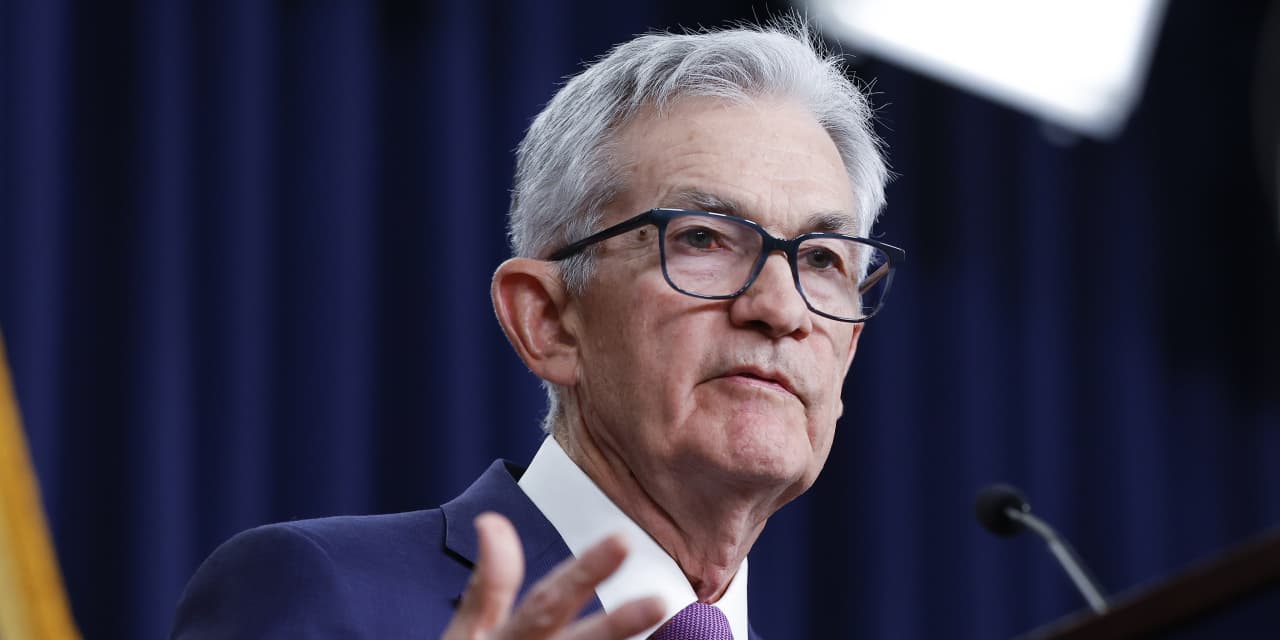Federal Reserve Chair Jerome Powell is asking the American public for patience while the central bank figures out the best time to start cutting interest rates. He does, though, expects at least one drop this year.
In an interview with CBS’ 60 Minutes on Sunday, Powell laid out his case. “I think people have been patient and have been through a pretty difficult time,” he said in response to a question. “And I think now we’re coming through that time and starting to feel a little bit better about things.”
Powell, who was interviewed for the show before Friday’s stronger-than-expected-report on January jobs, repeated his view that the Fed is making progress, but that the job still isn’t done. He acknowledged that the economy is growing at a solid pace, that unemployment of 3.7% shows the labor market is strong, and that inflation is coming down.
“With the economy strong like that, we feel like we can approach the question of when to begin to reduce interest rates carefully,” he said.
The cut may not come in March, as many have been anticipating, Powell said.
“We’ve said that we want to be more confident that inflation is moving down to 2%,” he said. “I think it’s not likely that this committee will reach that level of confidence in time for the March meeting, which is in seven weeks.”
That isn’t, Powell said, because he and the other members of the Fed’s policymaking committee lack confidence that inflation is moving sustainably down toward the target.
“Our confidence is rising,” he said. “We just want some more confidence before we take that very important step of beginning to cut interest rates.”
Most committee members, he said, see a rate cut this year. The last time Fed officials offered economic projections—in December—they had rates ending the year at 4.6%, from the current level of 5.25% to 5.5%. That implies more than one quarter-point rate cut this year. The next set of projections will come out at the Fed’s March meeting.
“Nothing has happened in the meantime that would lead me to think that people would dramatically change their forecasts,” Powell told CBS’ Scott Pelley.
Asked to respond to young potential homeowners who don’t believe they can afford a mortgage, Powell said the work the Fed is doing is to create price stability. “Interest-sensitive spending like mortgages and buying, you know, durable goods and things like that, that’s going to be expensive for a while. That’s going to slow the economy down. But this is all part of getting back to a place of price stability when interest rates can be low again on a sustainable basis.”
Powell also said their considerations are independent of politics as the general election approaches this fall, potentially putting President Joe Biden up against former President Donald Trump. Both are leading candidates for their respective parties’ nominations.
Powell said the possibility of a recession isn’t elevated right now. “We just finished a year in which the economy grew 3.1%. That’s a really healthy growth rate,” he said. “The fourth quarter growth rate was actually a little better than that. So, growth is fine.”
Asked about the possibility of another real estate led banking crisis, as commercial real estate values are dropping, Powell said large banks have a manageable problem, but small and regional banks with concentrated commercial real estate exposures are challenged.
“We’re working with them,” Powell said. “This is something we’ve been aware of for, you know, a long time, and we’re working with them to make sure that they have the resources and a plan to work their way through the expected losses. There will be expected losses.”
Powell acknowledged that while it is a “sizable problem” he said it “doesn’t appear to have the makings of the kind of crisis things that we’ve seen sometimes in the past, for example, with the global financial crisis.”
Powell repeated that there’s a risk the Fed acts too soon and a risk if it waits too long. Potential risk factors would be possible weakness emerging in the labor market or inflation dropping, which would justify acting sooner, or persistent inflation, which would justify waiting longer.
“We think we can be careful in approaching this decision just because of the strength that we’re seeing in the economy,” Powell said.
Write to Liz Moyer at [email protected]
Read the full article here




